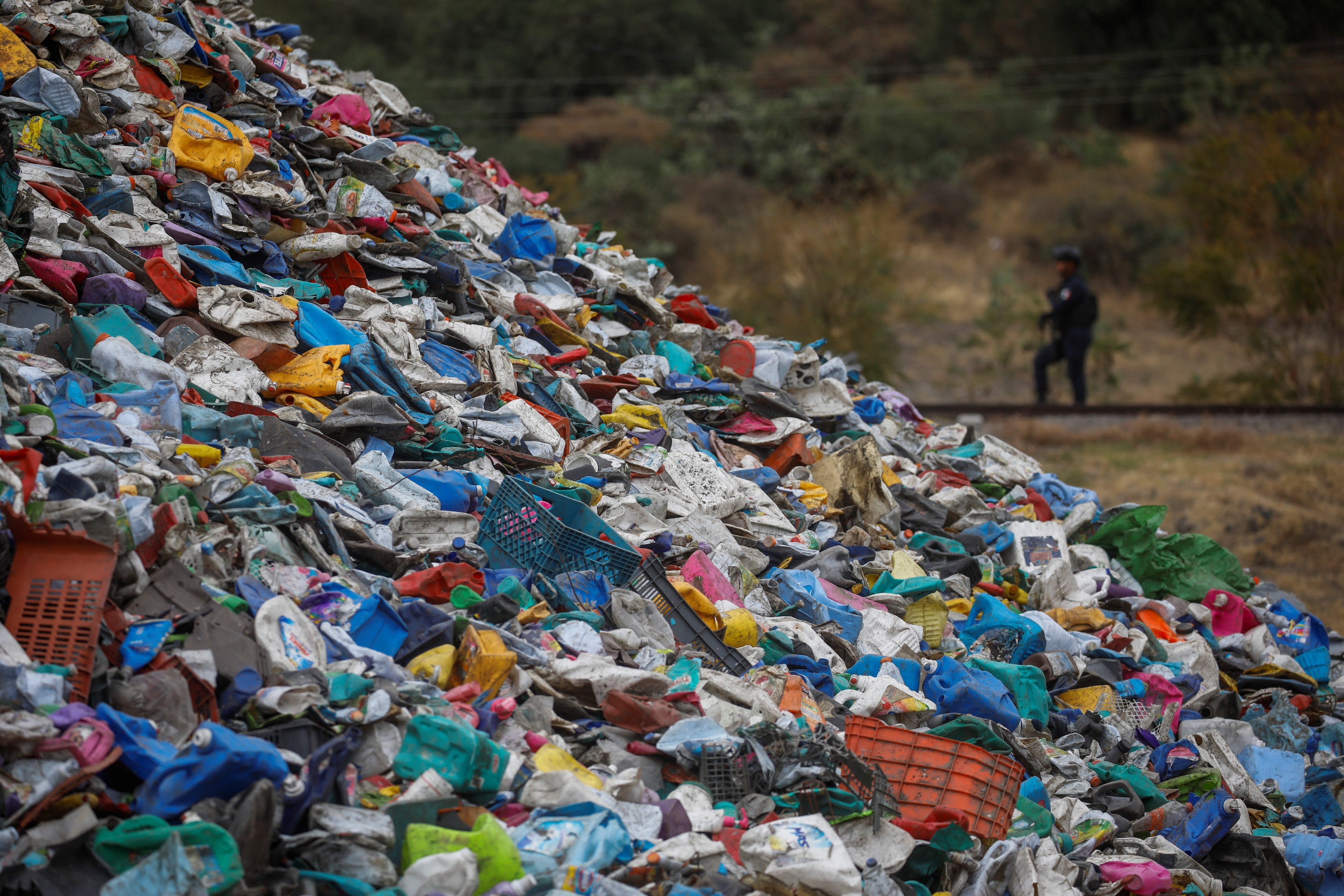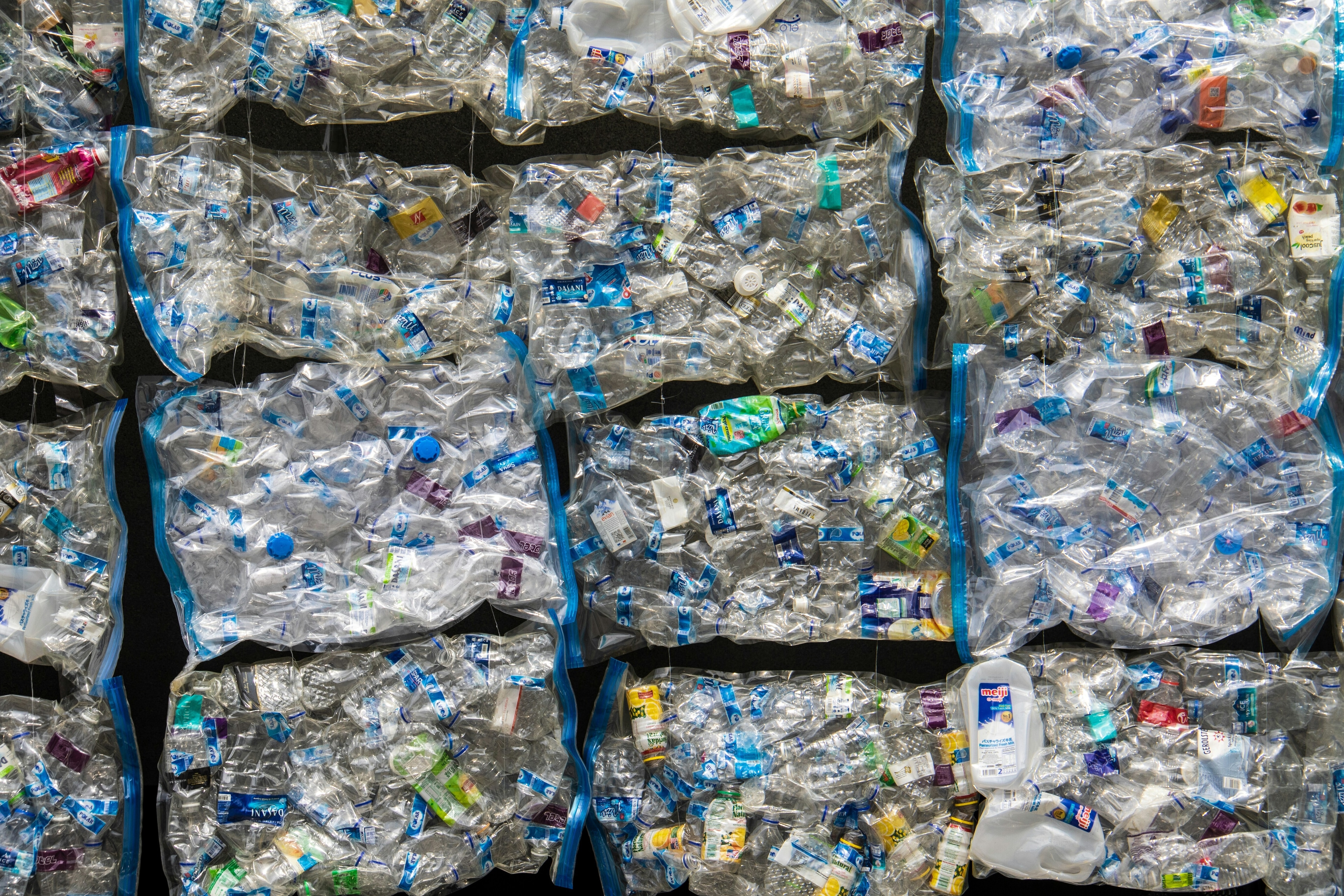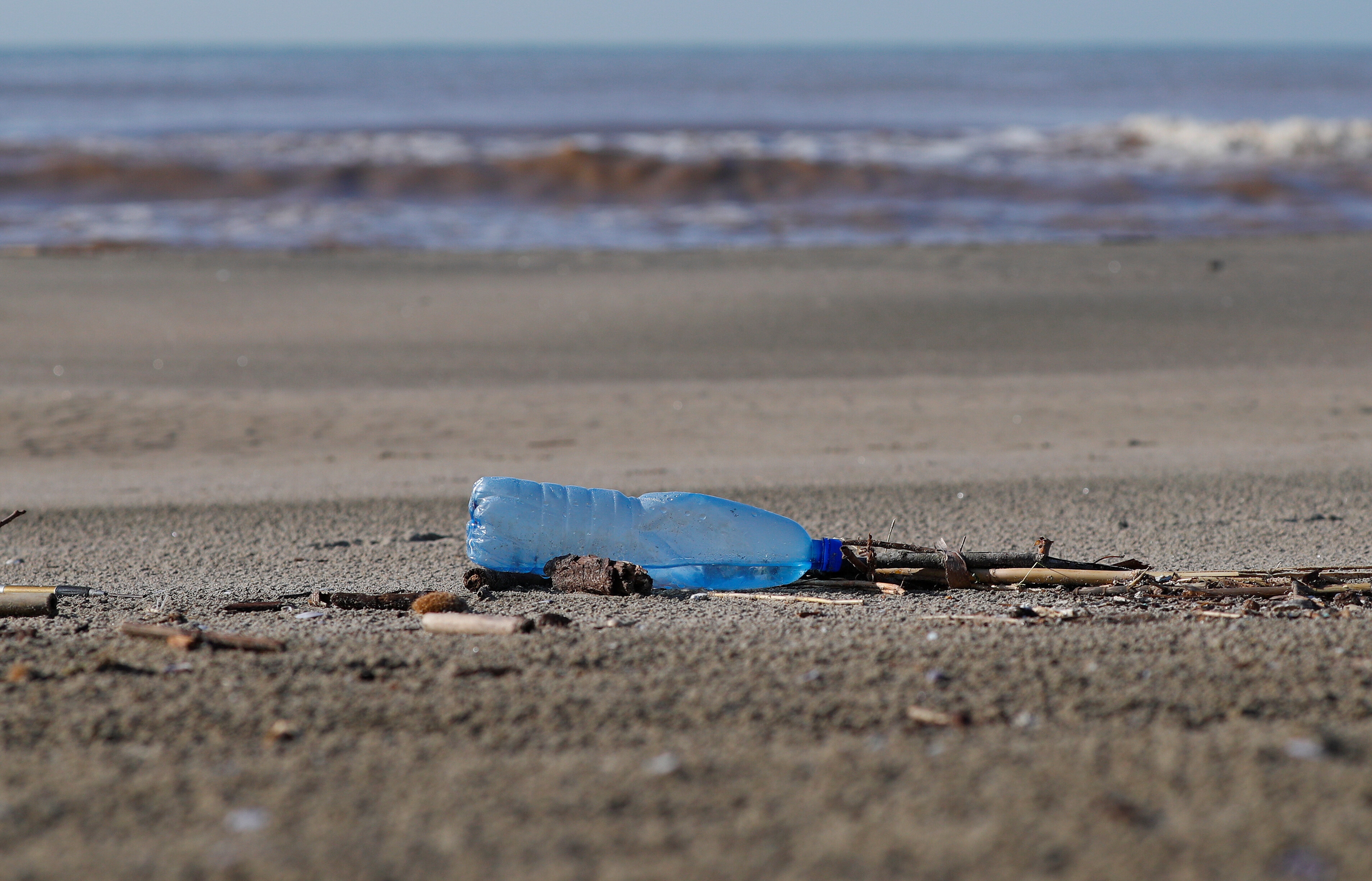This boat made from plastic waste is on a mission to end ocean pollution

The Flipflopi boat is made of 10 tonnes of discarded plastic, including 30,000 flip-flops.
Image: CNN
Stay up to date:
Plastic Pollution
- Last year, the recycled Flipflopi boat sailed from Kenya to Tanzania to raise awareness of plastic pollution in the world’s oceans.
- It is made from 10 tonnes of discarded plastic, including 30,000 flip-flops.
- Now it will visit Kenya, Tanzania and Uganda to campaign for a ban on single-use plastic.
- There are around 51 trillion microscopic pieces of plastic in the sea, according to Surfers Against Sewage.
What’s nine metres long, made from recycled plastic rubbish, and sails the waters of East Africa highlighting the need to dispose of plastic waste responsibly?
The Flipflopi, a traditional single-masted sailing boat (or dhow) made – less traditionally – from more than 10 tonnes of plastic and more than 30,000 flip-flops.
From seashore to lakeside
Launched in 2018 from the island of Lamu in Kenya, the Flipflopi has taken part in the UN Environment Programme Clean Seas initiative and has sailed from Kenya to Tanzania, a voyage of 500 kilometres, to help spread the message.
Now the dhow is getting ready for its second major excursion: the ‘upstream expedition’ will see the Flipflopi crew set sail along inland waterways. Coinciding with World Cleanup Day on 19 September, the boat will be relocated to the Kenyan city of Kisumu on the shores of Lake Victoria, the second-largest freshwater lake in the world.
From there, the Flipflopi will set sail on a four-week journey in early 2021, circumnavigating the lake, stopping off at the three countries that border it – Kenya, Tanzania and Uganda.
What is the World Economic Forum doing about plastic pollution?
Phasing out single-use plastic
Plastic has revolutionized many aspects of daily life. Its use in clinical settings allows for sterile implements and medicines to be safely packaged and transported. And when used to wrap fresh food, it can reduce damage and prolong shelf-life.
But single-use plastic, discarded and not properly disposed of, has become a significant pollution problem. There are currently around 51 trillion microscopic pieces of plastic in the world’s oceans, according to the pressure group, Surfers Against Sewage.

Many African nations have already started phasing out the use of some plastic items, particularly bags. But others argue it’s a problem best tackled at source, with the producers of plastics being held to account.
The upstream campaign aims “to change mindsets about plastic pollution and the urgent need to preserve our environments”. It will also raise awareness of a petition calling on East African countries to implement a ban on all single-use plastics.
Don't miss any update on this topic
Create a free account and access your personalized content collection with our latest publications and analyses.
License and Republishing
World Economic Forum articles may be republished in accordance with the Creative Commons Attribution-NonCommercial-NoDerivatives 4.0 International Public License, and in accordance with our Terms of Use.
The views expressed in this article are those of the author alone and not the World Economic Forum.
Forum Stories newsletter
Bringing you weekly curated insights and analysis on the global issues that matter.
More on Nature and BiodiversitySee all
Pedro Gomez and Clemence Schmid
August 6, 2025
Tom Crowfoot
August 5, 2025
Hu Xiangdong and Felipe Carazo
August 1, 2025
Andrea Willige
July 30, 2025




